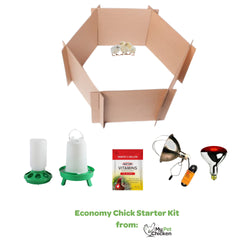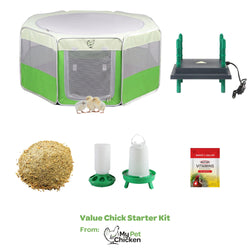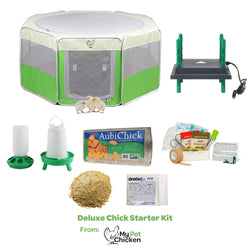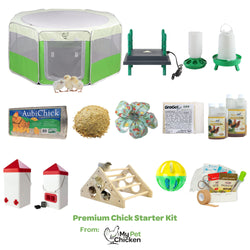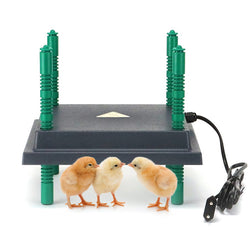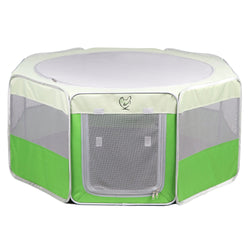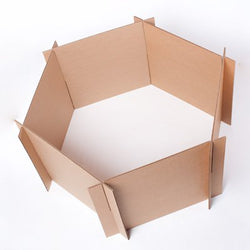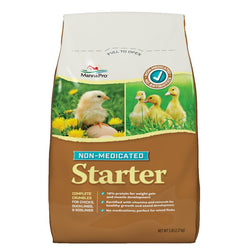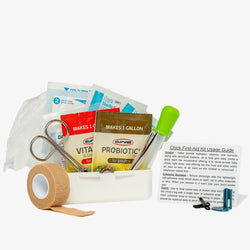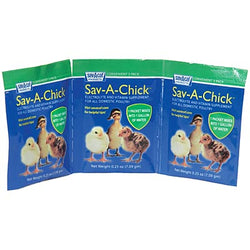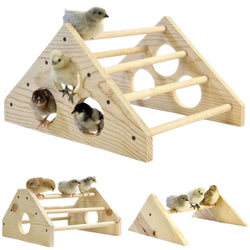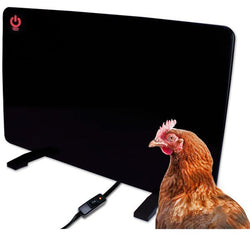Can Chickens Eat Pumpkins?
Back to blog
Yes, chickens can safely eat pumpkins, along with pumpkin seeds, skin, and guts. Fall is the best time to find pumpkins for chickens. Scoop up the left over, cheap pumpkins you can find from the grocery stores and farmers markets after Halloween.
Chickens just love them and they are a nutritional powerhouse for our fine feathered friends. Pumpkins are loaded with Vitamin A, Vitamin K, and don't forget the B, C and calcium. All of these offer chickens the same benefits as they offer us humankind.

Benefits of Feeding Pumpkins to Chickens
- Vitamin A: Which abounds in pumpkins, is needed in chickens for good vision, growth, and bone development. Also, it is called the "anti-infection" vitamin because it helps to maintain the immune system. In addition the linings of the digestive, reproductive, and respiratory tracts all derive benefit in maintaining a healthy status. A deficiency in Vitamin A can cause blood spots in eggs, upper respiratory symptoms called nutritional roup, that resembles bronchitis or infectious coryza and even cause blisters that look like fowl pox. Once these delicate tissues are damaged it opens the door for bacterial or viral infections. A little pumpkin is a wonderful thing when you think about it.
- Vitamin K: Aids in blood clotting and any chicken who dares to show a little blood is going to be in trouble with the flock, so clotting is a must.
- B and C vitamins that are contained in pumpkin relieve stress and promote growth and hatchability.
- Hydration: Pumpkins have a high water content, which can help keep chickens hydrated, particularly in hot weather.
- Carotenoids: Pumpkins contain carotenoids, such as beta-carotene, which not only contribute to the orange color of the flesh but also have antioxidant properties that can support a chicken's overall health.
- Minerals: Pumpkins contain essential minerals like potassium and calcium, which are important for muscle function and bone health in chickens.
- Enrichment: Feeding chickens pumpkins can be an enriching and entertaining activity for them. Chickens often enjoy pecking at and scratching the pumpkin flesh, which can help reduce boredom and stress in the flock.
Using Pumpkins as a Dewormer for your Chicken Flock
Pumpkin is often suggested as a natural dewormer for chickens, but it's essential to understand that while pumpkins have some potential benefits for poultry health, they should not be relied upon as the sole or primary method of deworming. Here's what you need to know:
- Fiber: Pumpkins are a good source of dietary fiber, and some proponents believe that the fiber in pumpkins can help flush out worms from a chicken's digestive system. The fiber may help promote regular bowel movements and create an environment that is less hospitable to internal parasites.
- Nutrients: Pumpkins are also rich in vitamins and minerals, which can contribute to a chicken's overall health. A healthy chicken with a strong immune system may be more resilient to worm infestations.
However, while pumpkins can offer some benefits, they are not a guaranteed or highly effective method for deworming chickens. If you suspect that your chickens have a worm infestation, it's generally recommended to use more proven and targeted deworming methods, such as deworming medications specifically designed for poultry. These medications are formulated to address the different types of internal parasites that can affect chickens.
How to Feed Pumpkin to Chickens
1. Serve Raw: Wash the pumpkins to remove any dirt or contaminants on the surface. Then, cut the pumpkins into manageable pieces. You can slice them in half, quarters, or even smaller chunks. Cutting them into smaller pieces can make it easier for chickens to peck at and consume. You can also scoop out the pumpkin guts and seeds and feed them raw to your chicken flock.
Another option is to partially carve the top layer of skin off a pumpkin (using a vegetable peeler) and let the chickens carve the rest by pecking their way through. This will keep them busy with enrichment and provide you with great entertainment!
2. Bake and Serve: Cut up the pumpkin into manageable pieces and bake at 350 degrees for 45-60 minutes. Let cool and serve to your flock or freeze to serve on a future day.
It's important to note that while pumpkins can be a healthy addition to a chicken's diet, they should be part of a balanced diet and not the sole source of nutrition. The bulk of a chicken's diet should consist of poultry feed designed to meet their specific nutritional requirements. Additionally, you should avoid feeding chickens any rotten or moldy pumpkins, as this can be harmful to their health. It's a good practice to chop or mash the pumpkin to make it easier for chickens to consume, especially if it's a large, hard pumpkin.
Do you feed pumpkins to your chickens?
